
The former student of Lam Son High School for the Gifted (Thanh Hoa) won a Silver medal at the International Mathematical Olympiad (IMO) in 2000, becoming the 11th female student from Vietnam to win a medal in history. After that, she chose to study at Hanoi University of Science and Technology, in the Talent Program of Electronics and Telecommunications. A year later, Associate Professor Le received a scholarship from the Japanese Government, studied Information Electronics at the University of Tokyo, graduated with excellent results and was admitted directly to the master's program. While studying for her doctorate, Associate Professor Le continued to achieve many achievements such as the best student of the Japan Institute of Informatics in 2018, having excellent articles at scientific conferences. With such an impressive personal profile, many people were surprised when she turned down the opportunity to become a lecturer at a university in Japan to return to Vietnam.

[caption id="attachment_578741" align="aligncenter" width="1000"]  [/caption] Before defending her doctoral thesis at the National Institute of Informatics in Japan, Phi Le received an introduction from her supervisor for a teaching position at a university in Osaka (Japan). This was a rare opportunity, and the professor advised her to consider it. If she stayed, she knew for sure that she would be working in a professional environment with very good benefits. But at that time, there were many things that made her think. “To be honest, the things I could do if I stayed in Japan, many other people could probably do. In Vietnam, the number of lecturers who truly pursue the path of research and spend time and enthusiasm to guide and pass on their passion to young people is not much. Therefore, if I return to the country, I can help students discover and develop their own research abilities.” Another reason, according to her, is that although returning will have many difficulties, if you are willing to make arrangements, you can also do research in Vietnam. “The Information Technology industry is different from some other industries in that it can be worked remotely and is not too dependent on expensive materials and machinery. Of course, research conditions in Vietnam may not be as good as abroad, but I always keep in mind that no matter the circumstances, we must try our best to do our best in those circumstances.”
[/caption] Before defending her doctoral thesis at the National Institute of Informatics in Japan, Phi Le received an introduction from her supervisor for a teaching position at a university in Osaka (Japan). This was a rare opportunity, and the professor advised her to consider it. If she stayed, she knew for sure that she would be working in a professional environment with very good benefits. But at that time, there were many things that made her think. “To be honest, the things I could do if I stayed in Japan, many other people could probably do. In Vietnam, the number of lecturers who truly pursue the path of research and spend time and enthusiasm to guide and pass on their passion to young people is not much. Therefore, if I return to the country, I can help students discover and develop their own research abilities.” Another reason, according to her, is that although returning will have many difficulties, if you are willing to make arrangements, you can also do research in Vietnam. “The Information Technology industry is different from some other industries in that it can be worked remotely and is not too dependent on expensive materials and machinery. Of course, research conditions in Vietnam may not be as good as abroad, but I always keep in mind that no matter the circumstances, we must try our best to do our best in those circumstances.”
 [/caption] Before defending her doctoral thesis at the National Institute of Informatics in Japan, Phi Le received an introduction from her supervisor for a teaching position at a university in Osaka (Japan). This was a rare opportunity, and the professor advised her to consider it. If she stayed, she knew for sure that she would be working in a professional environment with very good benefits. But at that time, there were many things that made her think. “To be honest, the things I could do if I stayed in Japan, many other people could probably do. In Vietnam, the number of lecturers who truly pursue the path of research and spend time and enthusiasm to guide and pass on their passion to young people is not much. Therefore, if I return to the country, I can help students discover and develop their own research abilities.” Another reason, according to her, is that although returning will have many difficulties, if you are willing to make arrangements, you can also do research in Vietnam. “The Information Technology industry is different from some other industries in that it can be worked remotely and is not too dependent on expensive materials and machinery. Of course, research conditions in Vietnam may not be as good as abroad, but I always keep in mind that no matter the circumstances, we must try our best to do our best in those circumstances.”
[/caption] Before defending her doctoral thesis at the National Institute of Informatics in Japan, Phi Le received an introduction from her supervisor for a teaching position at a university in Osaka (Japan). This was a rare opportunity, and the professor advised her to consider it. If she stayed, she knew for sure that she would be working in a professional environment with very good benefits. But at that time, there were many things that made her think. “To be honest, the things I could do if I stayed in Japan, many other people could probably do. In Vietnam, the number of lecturers who truly pursue the path of research and spend time and enthusiasm to guide and pass on their passion to young people is not much. Therefore, if I return to the country, I can help students discover and develop their own research abilities.” Another reason, according to her, is that although returning will have many difficulties, if you are willing to make arrangements, you can also do research in Vietnam. “The Information Technology industry is different from some other industries in that it can be worked remotely and is not too dependent on expensive materials and machinery. Of course, research conditions in Vietnam may not be as good as abroad, but I always keep in mind that no matter the circumstances, we must try our best to do our best in those circumstances.” 
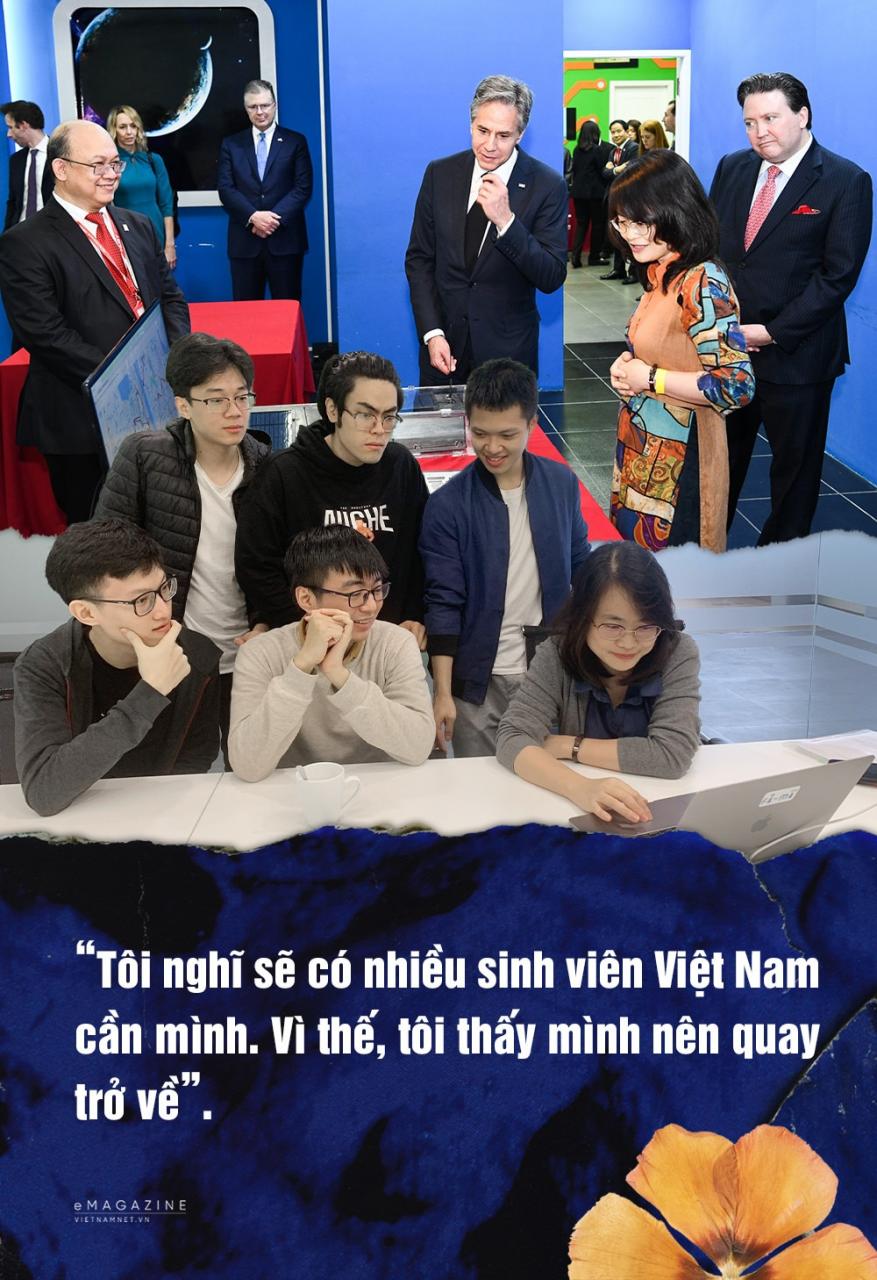 Thinking so, in 2019, she decided to return home after completing her doctoral program. In the early stages, her research group was not well known. Ms. Le admitted that the biggest difficulty at that stage was human resources. Therefore, the female lecturer tried to bring information to students, search, discover and gather students with suitable qualities for research to join the research group. During this period, Ms. Le's group focused on problems related to the Internet of Things (IoT), specifically applying Reinforcement Learning to energy optimization problems in wireless sensor networks. After a period of doing theoretical problems, Associate Professor Le changed direction, focusing more on highly applicable research, directly solving problems that have a great impact on society such as the environment and health. “The more I do research, the more I understand that “the highest purpose of science is to serve humanity”. Therefore, I want to participate in research that solves practical problems of the country”, Ms. Le said. Currently, Associate Professor Le is the head of a project on smart environment and a key member of a project on smart healthcare.
Thinking so, in 2019, she decided to return home after completing her doctoral program. In the early stages, her research group was not well known. Ms. Le admitted that the biggest difficulty at that stage was human resources. Therefore, the female lecturer tried to bring information to students, search, discover and gather students with suitable qualities for research to join the research group. During this period, Ms. Le's group focused on problems related to the Internet of Things (IoT), specifically applying Reinforcement Learning to energy optimization problems in wireless sensor networks. After a period of doing theoretical problems, Associate Professor Le changed direction, focusing more on highly applicable research, directly solving problems that have a great impact on society such as the environment and health. “The more I do research, the more I understand that “the highest purpose of science is to serve humanity”. Therefore, I want to participate in research that solves practical problems of the country”, Ms. Le said. Currently, Associate Professor Le is the head of a project on smart environment and a key member of a project on smart healthcare. 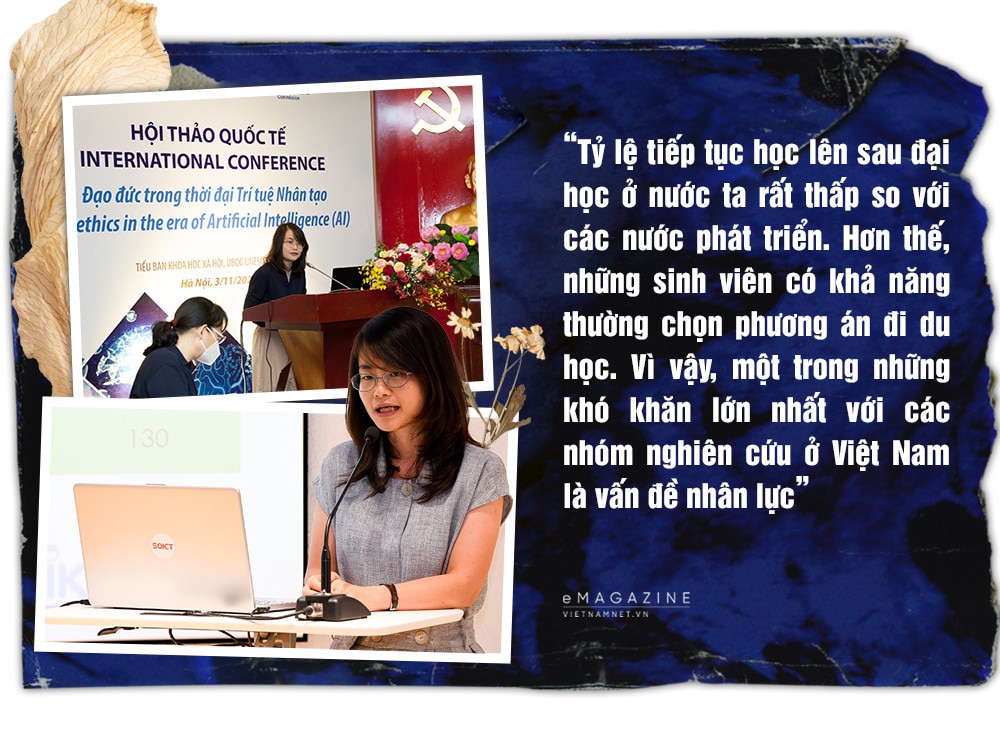

From zero, now Associate Professor Dr. Nguyen Phi Le's research group has gathered many talented students from the School of Information and Communication Technology, Hanoi University of Science and Technology with a steady number of about 30 people every year. A special thing is that the rate of postgraduate students in her lab is always among the largest in the school. At first, some students did not intend to continue their postgraduate studies but only applied to the lab to get acquainted with research. However, after a while, they changed direction and decided to continue studying. There are also students who have research capacity but have not been "awakened" and developed their abilities, when participating in research, they gradually love and expand their future career orientation.

[caption id="attachment_578750" align="aligncenter" width="1000"]  [/caption] Up to now, one thing that Associate Professor Le regrets is that during her time in Japan, she only focused on studying so she did not have many outside experiences. “At that time, I believed that if I studied, I had to study seriously. So for 28 years, I only knew how to study and study.” After completing her master's degree at the University of Tokyo, because she wanted to try to change to a corporate environment, Associate Professor Le "interrupted" and did not continue her doctoral studies immediately but returned to Vietnam, working at the Research and Development Center of Viettel Group. However, at that time, the general research environment in Vietnam was not really developed, while she loved jobs that required high thinking and creativity. Therefore, after a short time, Ms. Le decided to return to Hanoi University of Science and Technology - where she studied - to research and teach. “When I first returned to Bách khoa, I continued to “slowly” research. This “break” gave me more time to accumulate and approach practical problems. Thanks to that, I always had problems ready for me and constantly thought about the direction of the solution. My doctoral studies therefore went more smoothly.”
[/caption] Up to now, one thing that Associate Professor Le regrets is that during her time in Japan, she only focused on studying so she did not have many outside experiences. “At that time, I believed that if I studied, I had to study seriously. So for 28 years, I only knew how to study and study.” After completing her master's degree at the University of Tokyo, because she wanted to try to change to a corporate environment, Associate Professor Le "interrupted" and did not continue her doctoral studies immediately but returned to Vietnam, working at the Research and Development Center of Viettel Group. However, at that time, the general research environment in Vietnam was not really developed, while she loved jobs that required high thinking and creativity. Therefore, after a short time, Ms. Le decided to return to Hanoi University of Science and Technology - where she studied - to research and teach. “When I first returned to Bách khoa, I continued to “slowly” research. This “break” gave me more time to accumulate and approach practical problems. Thanks to that, I always had problems ready for me and constantly thought about the direction of the solution. My doctoral studies therefore went more smoothly.” 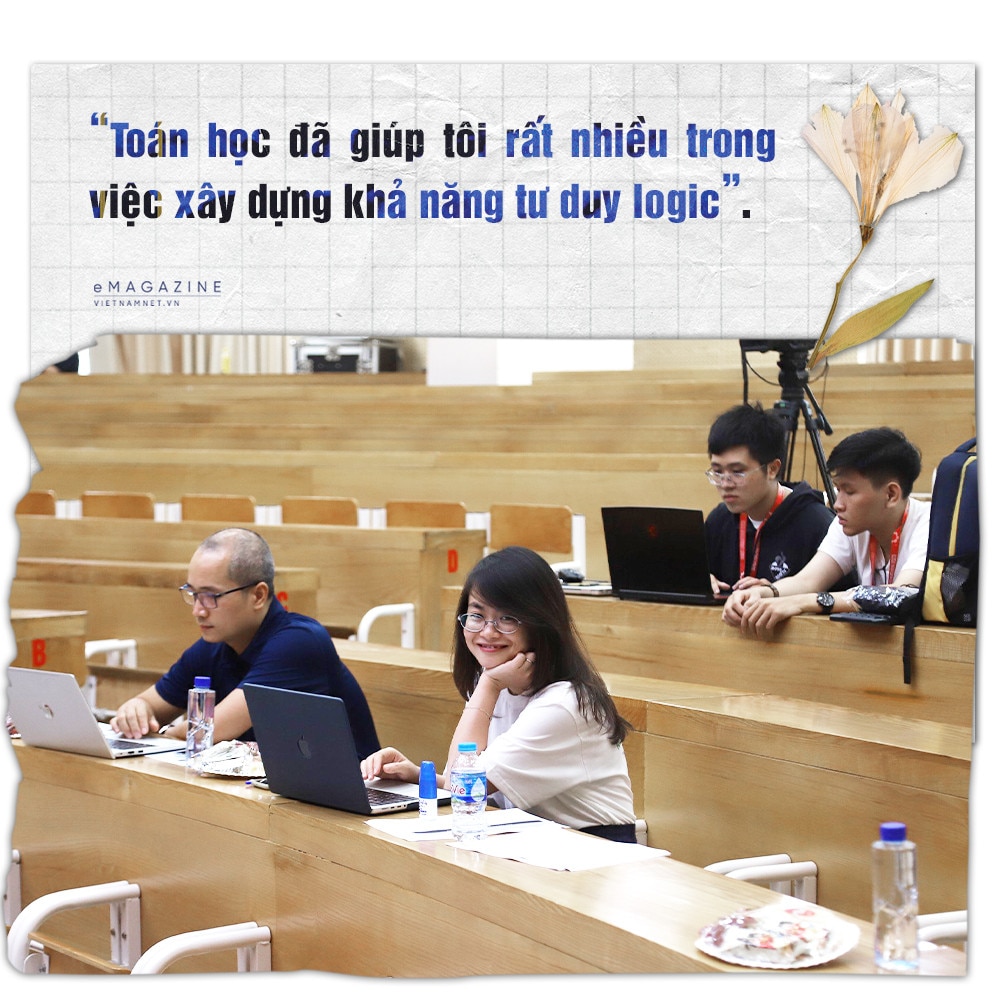
 [/caption] Up to now, one thing that Associate Professor Le regrets is that during her time in Japan, she only focused on studying so she did not have many outside experiences. “At that time, I believed that if I studied, I had to study seriously. So for 28 years, I only knew how to study and study.” After completing her master's degree at the University of Tokyo, because she wanted to try to change to a corporate environment, Associate Professor Le "interrupted" and did not continue her doctoral studies immediately but returned to Vietnam, working at the Research and Development Center of Viettel Group. However, at that time, the general research environment in Vietnam was not really developed, while she loved jobs that required high thinking and creativity. Therefore, after a short time, Ms. Le decided to return to Hanoi University of Science and Technology - where she studied - to research and teach. “When I first returned to Bách khoa, I continued to “slowly” research. This “break” gave me more time to accumulate and approach practical problems. Thanks to that, I always had problems ready for me and constantly thought about the direction of the solution. My doctoral studies therefore went more smoothly.”
[/caption] Up to now, one thing that Associate Professor Le regrets is that during her time in Japan, she only focused on studying so she did not have many outside experiences. “At that time, I believed that if I studied, I had to study seriously. So for 28 years, I only knew how to study and study.” After completing her master's degree at the University of Tokyo, because she wanted to try to change to a corporate environment, Associate Professor Le "interrupted" and did not continue her doctoral studies immediately but returned to Vietnam, working at the Research and Development Center of Viettel Group. However, at that time, the general research environment in Vietnam was not really developed, while she loved jobs that required high thinking and creativity. Therefore, after a short time, Ms. Le decided to return to Hanoi University of Science and Technology - where she studied - to research and teach. “When I first returned to Bách khoa, I continued to “slowly” research. This “break” gave me more time to accumulate and approach practical problems. Thanks to that, I always had problems ready for me and constantly thought about the direction of the solution. My doctoral studies therefore went more smoothly.” 

During her research career, Associate Professor Dr. Nguyen Phi Le always feels grateful for the time she spent studying Mathematics at Lam Son High School for the Gifted. “Some people think that why do we have to learn integrals and derivatives, when that knowledge will not be used in practice later? I think this view is a bit one-sided. In fact, many applied sciences require such knowledge. In fact, Mathematics and basic sciences not only help us have a foundation of knowledge to approach applied sciences but also help us develop logical thinking ability. A person with good thinking ability, not only in scientific research but also when facing problems in life, will be able to solve problems quickly, know how to connect problems together to have a general view”. For Associate Professor Le, the time she spent studying Mathematics has trained her to be persistent and not give up when facing a difficult problem. Instead of giving up, she often tries to find ways to solve the problem, even if it takes a few days or even a few weeks. “I always have questions in my mind about things I am still wondering about and want to solve them. That has become a habit and has helped me a lot on the path of scientific research. I think that when doing research, in addition to having to be serious, diligent, and disciplined, if you do not have curiosity and the desire to solve the problem thoroughly, it will be very difficult to succeed,” Associate Professor Le said. Thuy Nga Photo: NVCC Design: Nguyen Cuc
Vietnamnet.vn


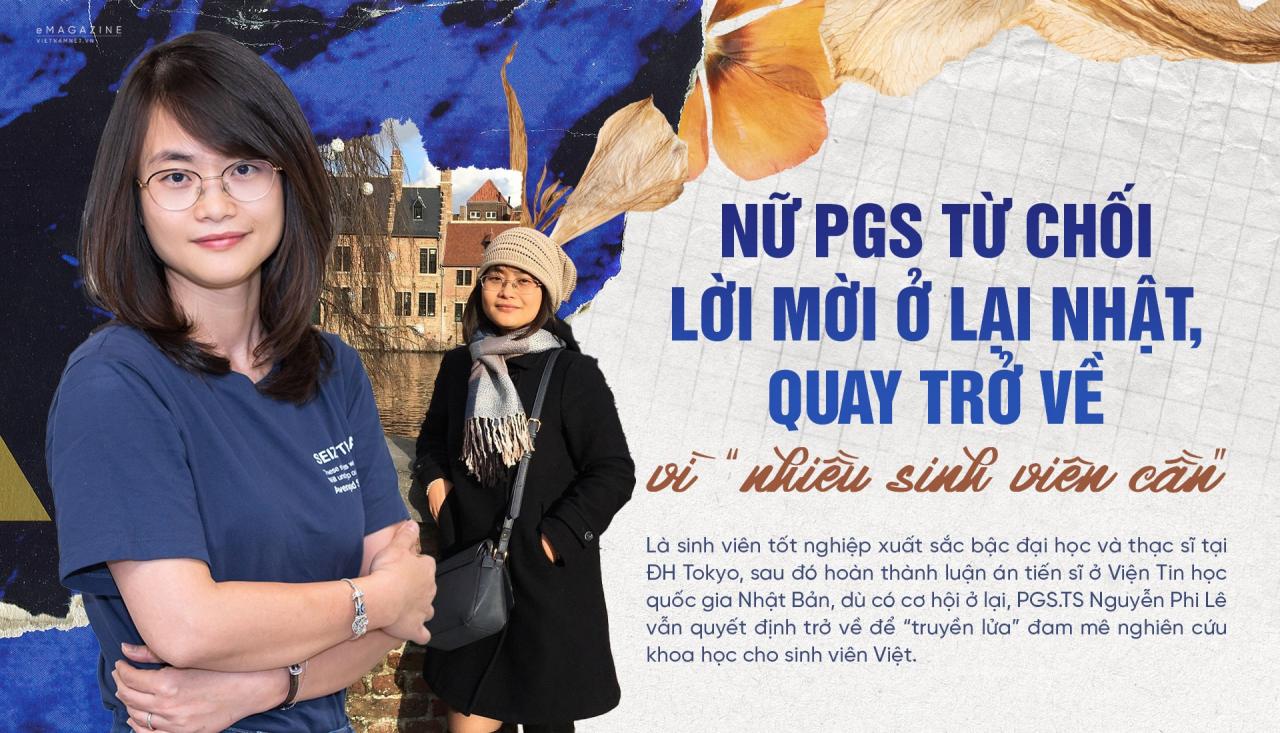
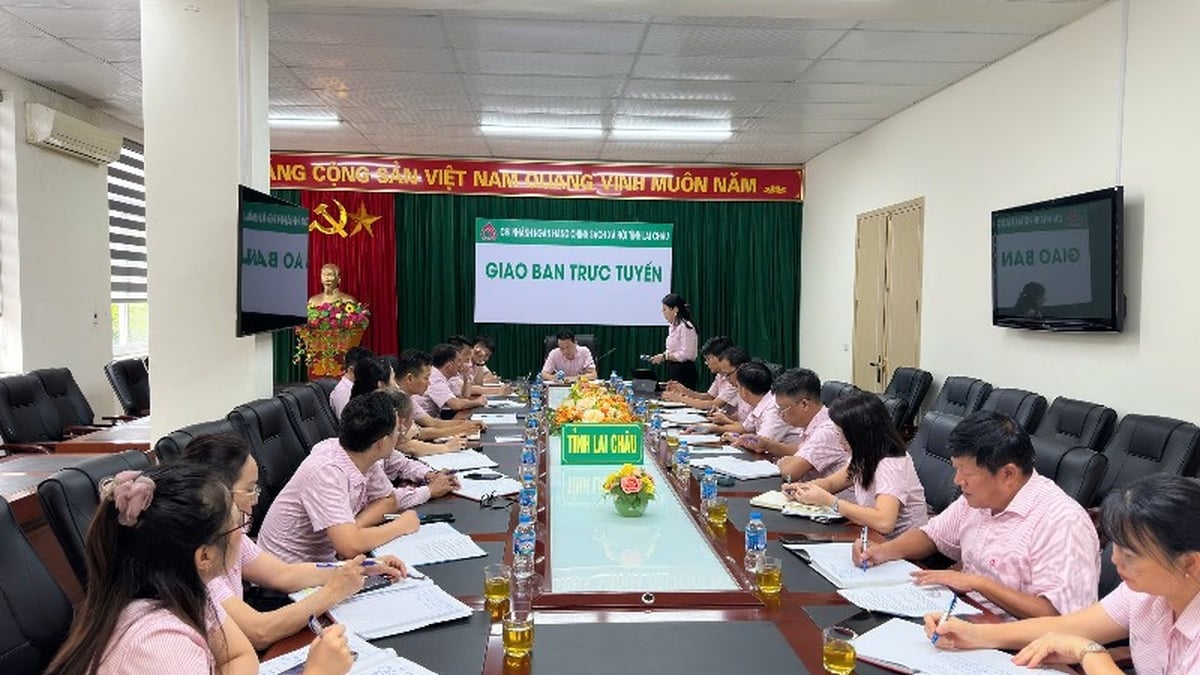
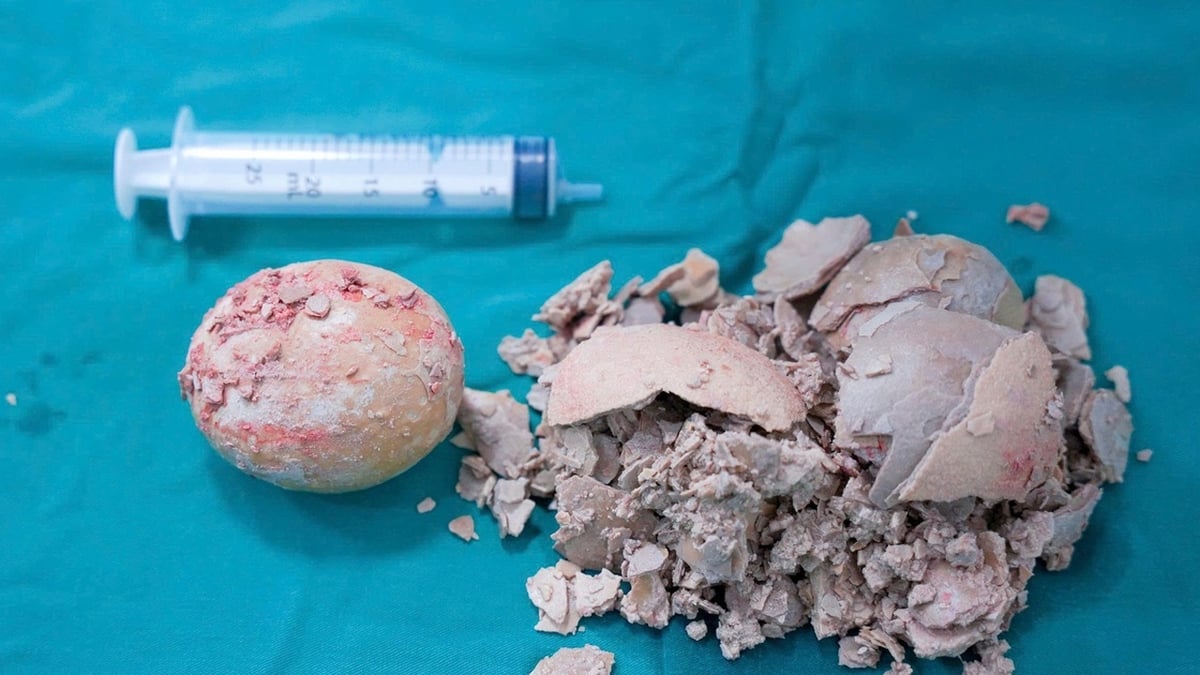

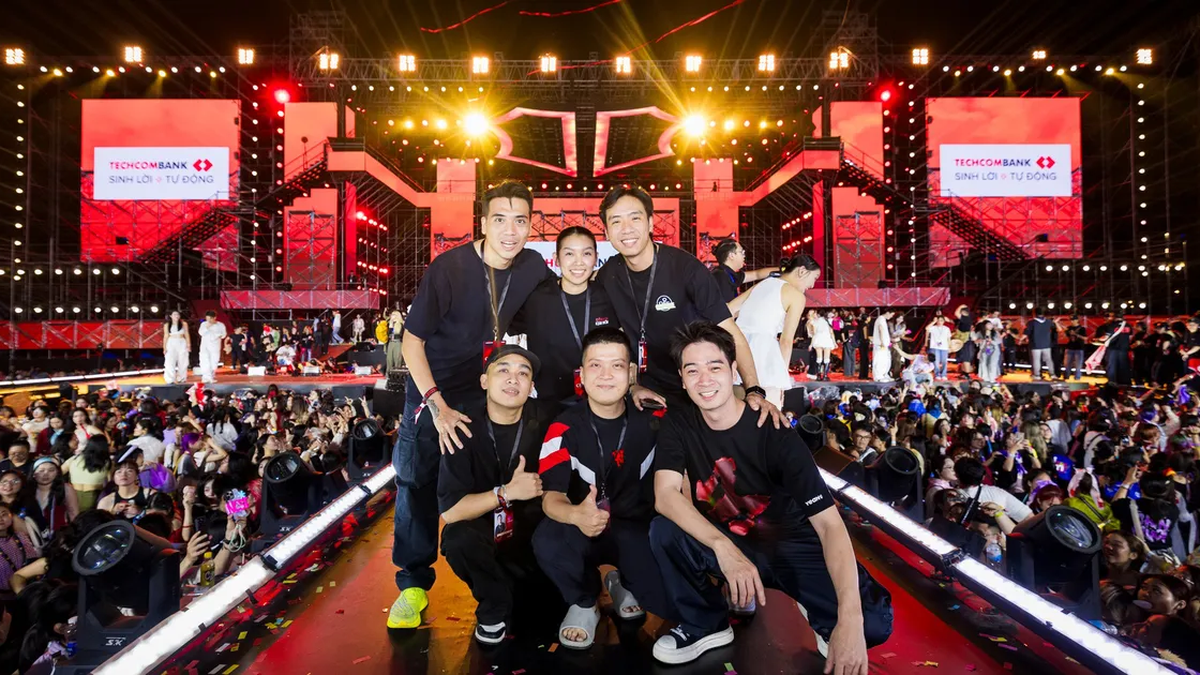
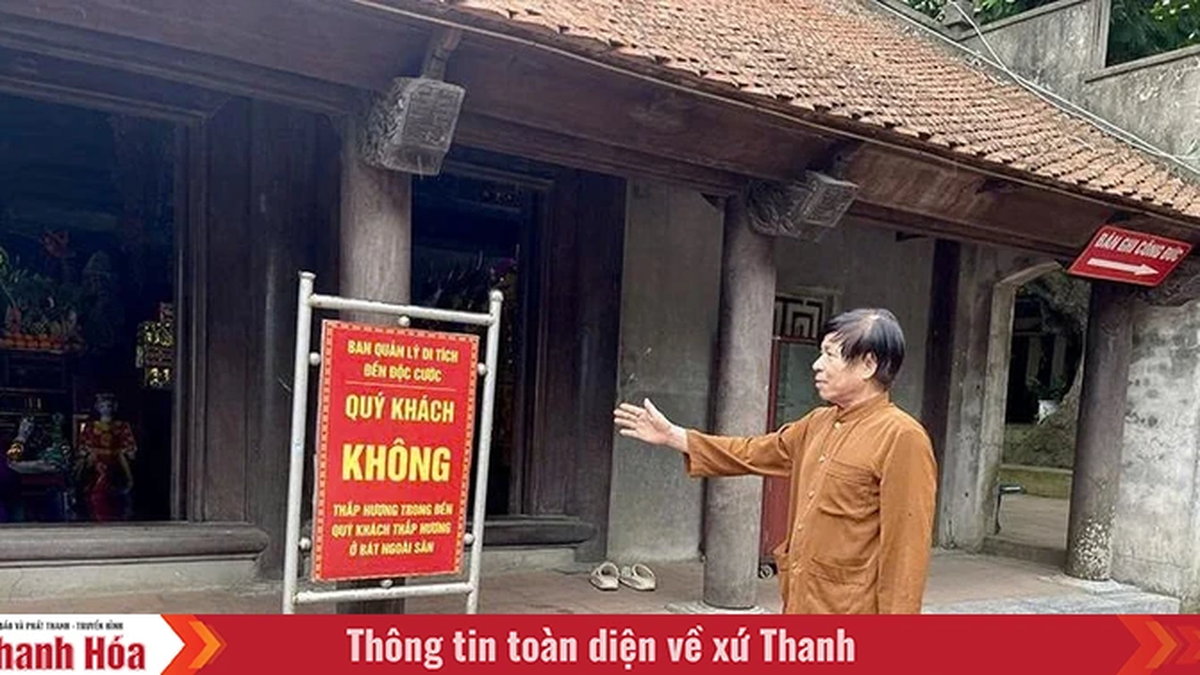
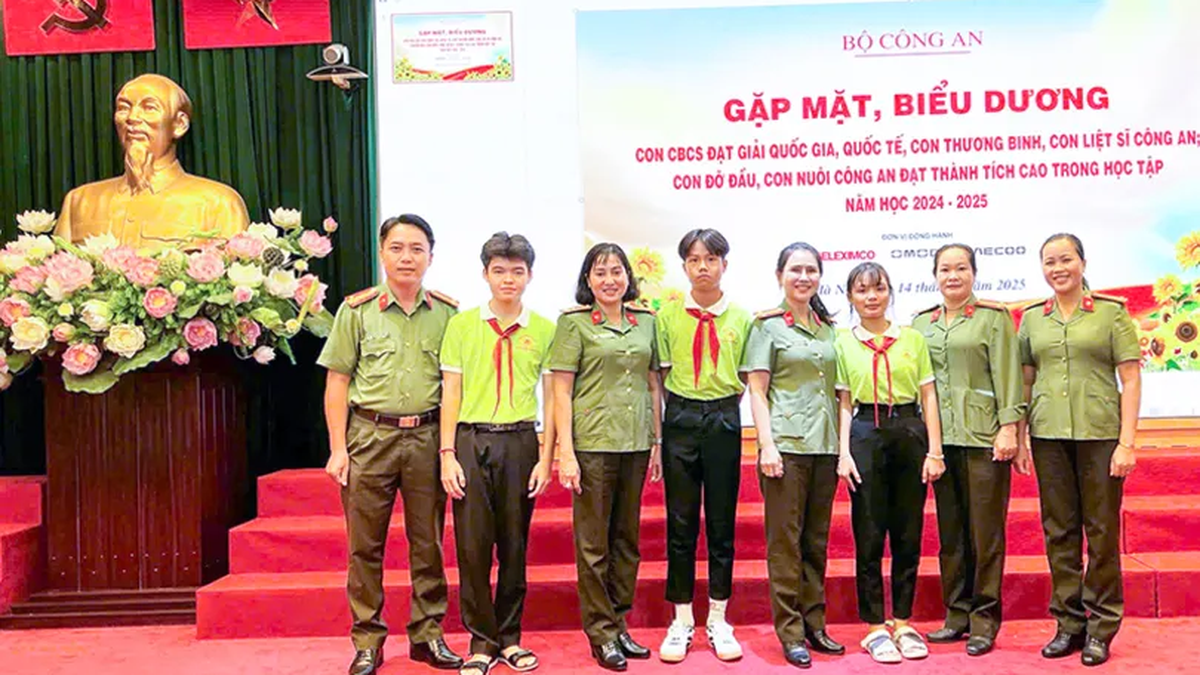
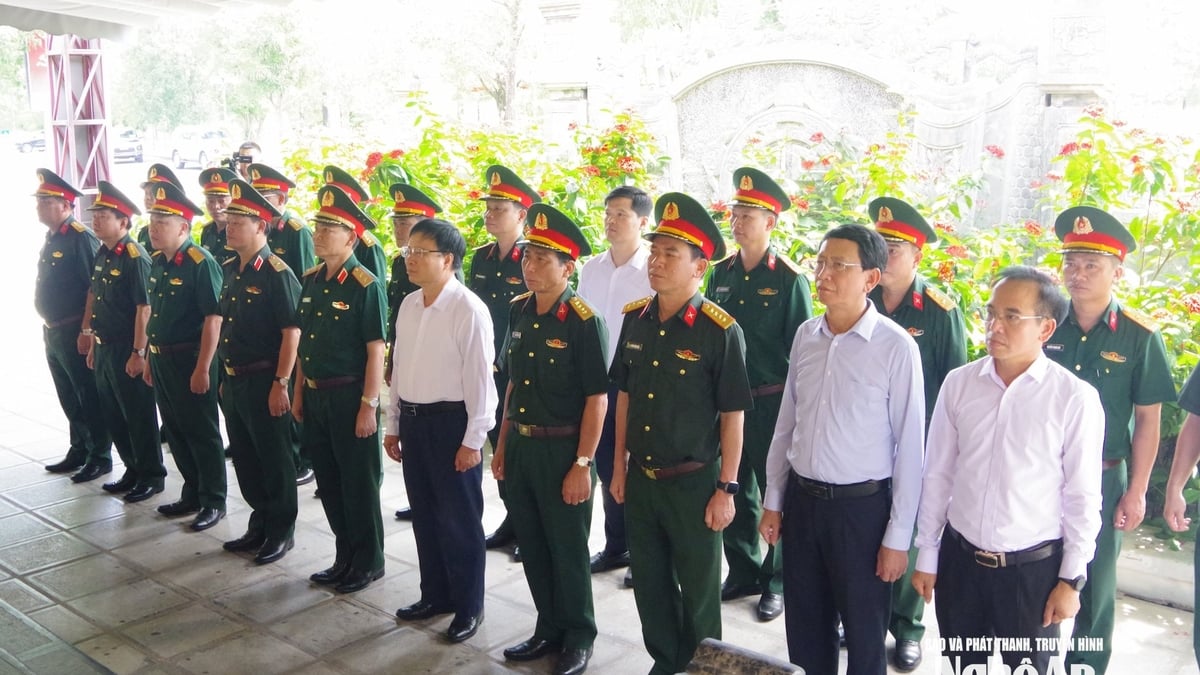
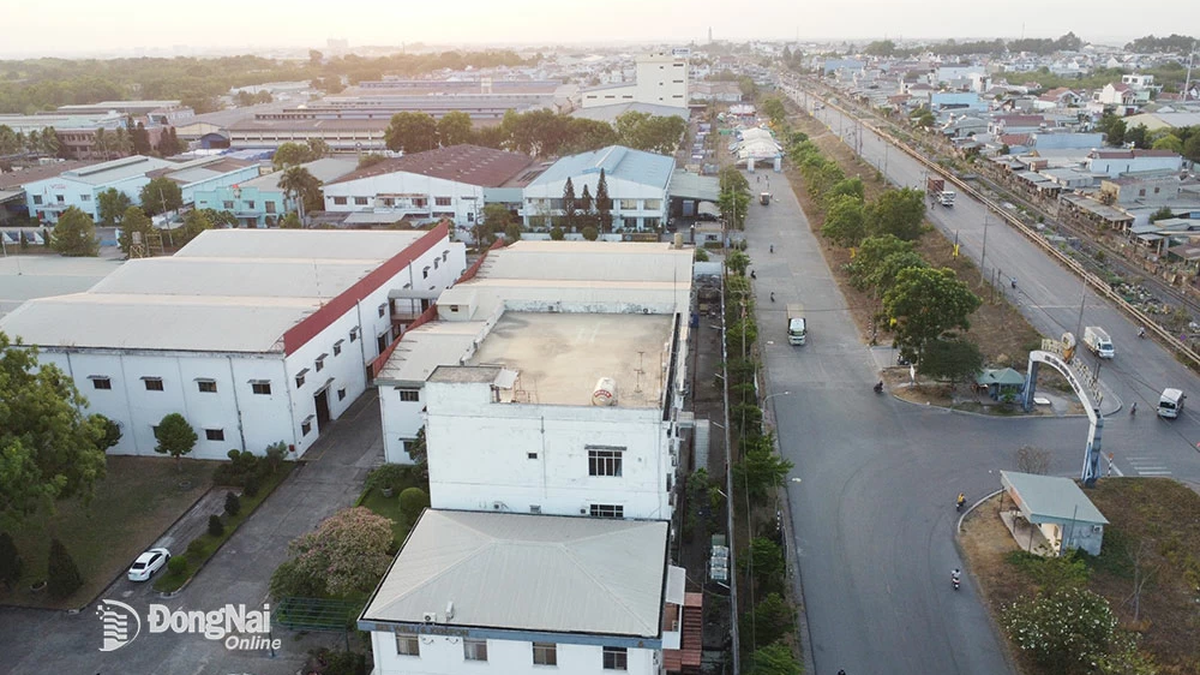
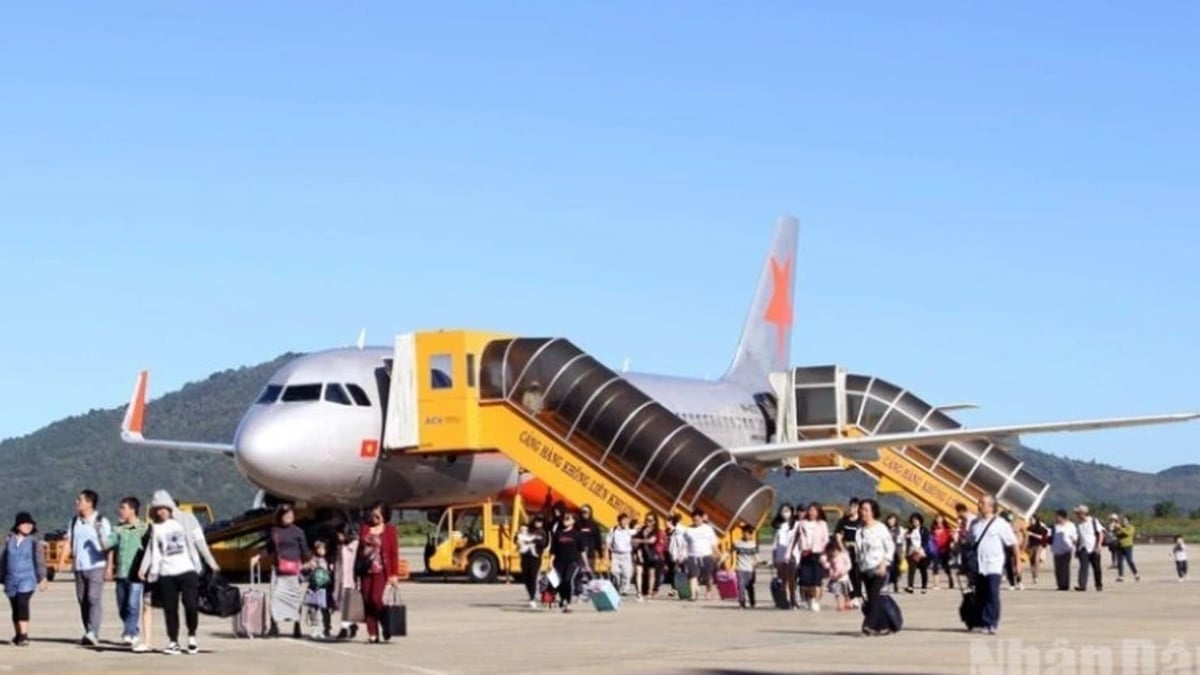
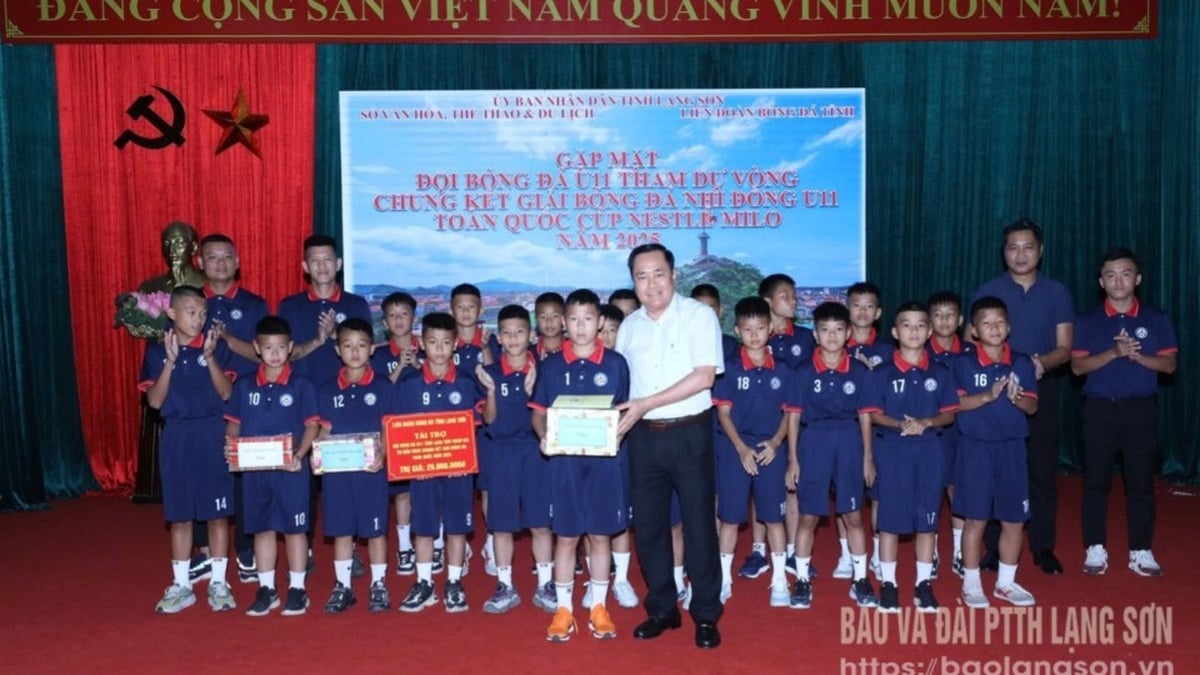







































![[Maritime News] More than 80% of global container shipping capacity is in the hands of MSC and major shipping alliances](https://vphoto.vietnam.vn/thumb/402x226/vietnam/resource/IMAGE/2025/7/16/6b4d586c984b4cbf8c5680352b9eaeb0)













































Comment (0)